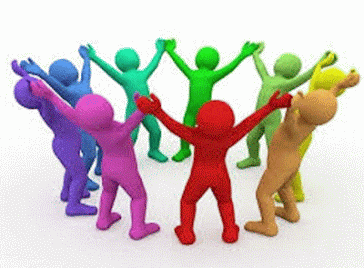There are several social groupings, including:
1. Primary Group
2. Secondary Group
3. In group
4. Out Group
5. Formal Group
6. Informal Group
7. Voluntary Group
8. Involuntary Group
9. Delegate Group
10. Un-social Group
11. Pseudo-social Group
12. Anti-social Group
13. Pro-social Group
Each of us belongs to one or more of the groups listed above. One can be classified as primary, secondary, informal, involuntary, or in group, in my opinion.
Humans are a social species; no human being develops in solitude; without other humans, a person cannot exist, yet they also have a life of their own. All humans live in groups, and an individual's life is an extension of collective life. We have something in common as well as something distinct with others in all groupings that apply to humans, which makes social groups more influential.
Social groupings are divided into two categories: primary and secondary. We belong to both primary and secondary groupings.
Our family is our most important social group. Our family is the first social group we encounter after birth, providing us with social life experience. Family teaches us how to treat people with love, respect, and compassion. Family instils in us numerous values and characteristics that aid in our interactions with various social groupings. As family is essential to us, we are an important component of our family; as the next generation of our family, we have many responsibilities to take care of; and we are also a pillar of our family, which will strengthen with time and support the family as a whole.Then there are family, tight friend circles, religious groups we belong to, and wherever we have responsibilities to fulfil, such as standing by our friends and relatives through thick and thin. We are also members of a religious community where we study the beliefs and teachings of our faith and serve as future crusaders.
We are also members of a variety of work, interest, and college-based groups. For example, in college, we frequently form different groups of people with whom we must collaborate or complete a project. Working with different people provides us with a variety of experiences, both positive and negative. We learn many things from others; it teaches us to compromise, make adjustments, and work with people of different temperaments; it teaches us about the good and bad qualities of many people, which in turn helps us to become a better person; in this quest, we make some good friends and lose some; we also learn patience, how to work with people who think differently and how to manage them; we also learn from other people's experiences and such. Working gives varied experience to us and shapes our personality and makes us a better person.




No comments:
Post a Comment